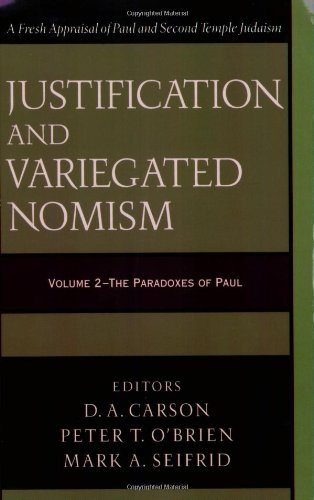A “Bonus” Chapter Summary from Books At a Glance
By Nathan Sundt
About the Author
Moises Silva is formerly the professor of New Testament at Westminster Theological Seminary and Gordon-Conwell Theological Seminary.
Overview
Moises Silva recognizes what his editors assigned him for his contribution: “to examine the significance of Galatians 2-3 for the contemporary debate on Paul’s view of justification.” The chapters have attracted voluminous writing in the new perspective movement, yet Silva sees an opportunity in his own space restrictions: “. . . greater selectivity, thus making it easier to shed the less relevant issues and focus more clearly on what matters most.” Indeed, Silva contends that—though nuance and precision are scholarly virtues—in the case of Galatians 2-3, the forest truly has been missed for the trees. The parsing of minutia, in other words, has allowed an implication that Paul does not contrast faith and works of law in Galatians. “The real issue, however, is not whether Paul contrasts pistis and erga nomou—that he does so is simply incontrovertible—but rather whether we have properly understood the true nature of that contrast” [transliteration supplied].
Indeed the context of Galatians 2:15–16 includes “but one alternative to faith” which is “works of law”—a phrase twice repeated and once emphatically so. “What needs to be appreciated at the outset is that any supposed uncertainty about [the meaning of ‘faith’ or ‘works of law’] does not prevent us from reaching some important conclusions.” Silva highlights that the “individual’s believing response plays a central role” in the argument and that “some kind of contrast between “works of law” and the individual’s response of faith is latent at all stages of the discussion.”
In line with these observations, Silva concludes that, regardless of the broader semantics of erga nomou, “one can decide whether this phrase functions in a positive or negative way in Galatians 2-3,” where the phrase is clearly negative, set over against what the apostle commends. In fact, the phrase “is never actually used by Paul in a positive context.” Silva is quick to point out that Paul has much good to say of nomos; many favorable comments are found in a letter like Galatians (e.g. 3:21). The initial neutrality (and relatively positive employment of nomou and ergon in their utterly separate contexts) only heightens the surprise of the Pauline reader, when the two, combined as a phrase, never occur in any contexts that could be construed as positive; in fact, almost every occurrence of the phrase is to provide an explicitly negative contrast to the faith that the apostle commends.
The remainder of the essay divides according to its analysis of four topics or phrases: law-works, the Christ-faith, faith-hearing, and the Spirit-promise. New perspective exegesis of law-works has focused on kosher restrictions: “it seems futile to deny that the ceremonial question in Antioch affects the meaning of the phrase “law-works” in Galatians 2:16 and colors the subsequent discussion in chapter 3. It would be a mistake, however, to infer, without further evidence, that national identification is the specific issue that troubles Paul or even the principal factor he has in mind when he speaks of “law-works.” Such a deduction needs to be proven and the evidence is not forthcoming.”
[To continue reading this summary, please see below....]The remainder of this article is premium content. Become a member to continue reading.
Already have an account? Sign In
Buy the books

JUSTIFICATION AND VARIEGATED NOMISM (VOLUME 2): PARADOXES OF PAUL, edited by D. A. Carson, Peter T. O'Brien, and Mark A. Seifrid